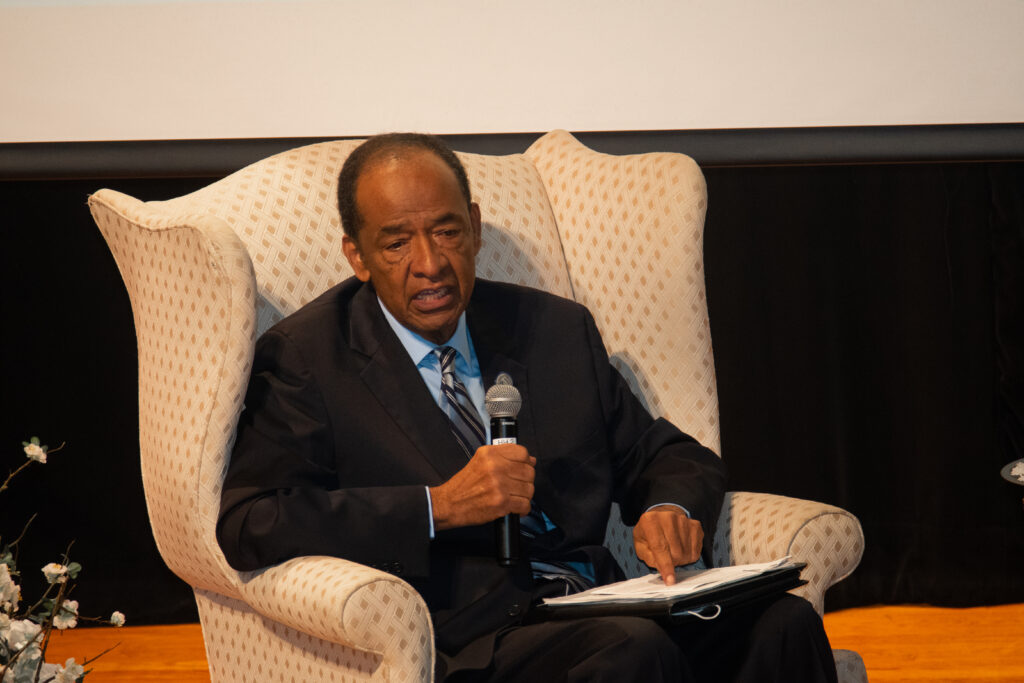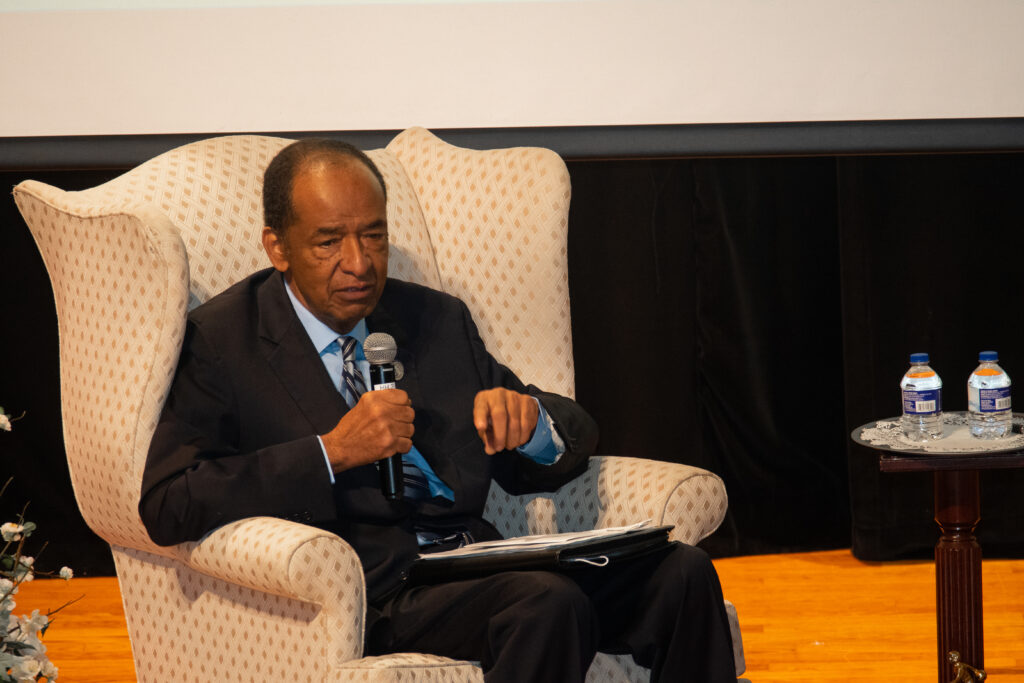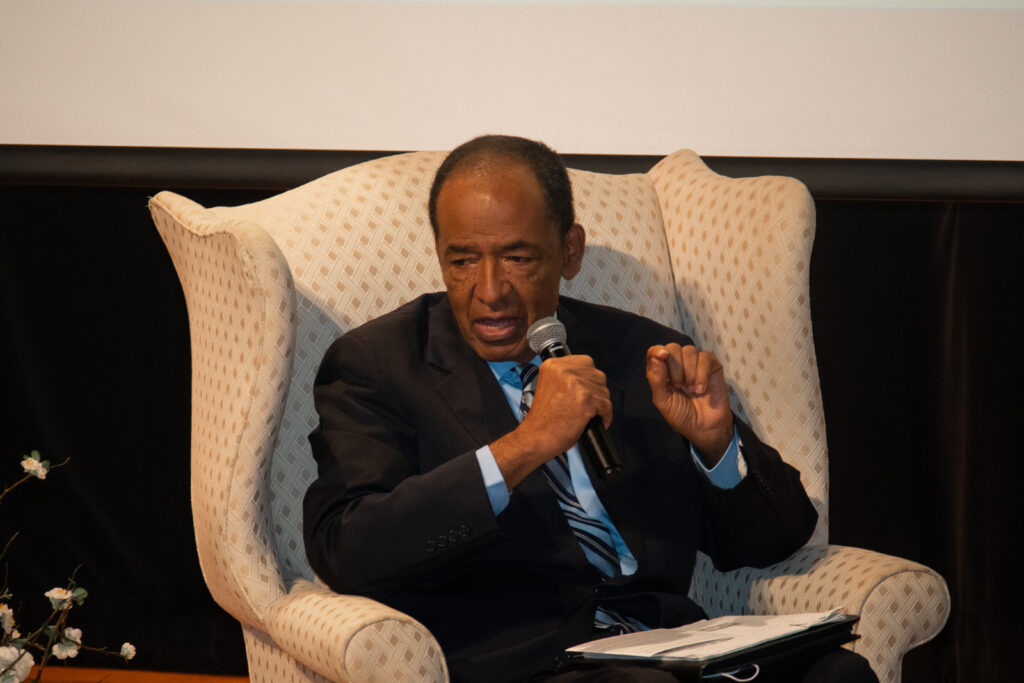Denmark, S.C. – Dr. Cleveland L. Sellers, Jr., 8TH President of Voorhees University was the Lyceum guest speaker, for Black History Month on February 9 in Massachusetts Hall. The American educator and civil rights activist, in a one-on-one interview style conversation, highlighted and presented his story” Hiding in Clear Sight.” He is a Native of Denmark, South Carolina and a strong advocate for social justice.
Sellers, interviewed by professor Tywana Chenault-Hemby, highlighted his life and legacy as an activist in the mid 1900’s. His eagerness for gaining a leadership role in the segregation movement came shortly after the murder of Emmett Till in 1955. In 1960, he organized and led his first sit-in protest at a Denmark, South Carolina lunch counter. Over the years, he grew to become a spokesman for people of color, particularly African Americans. Sellers participated in many marches located in segregated areas, that allowed him to eventually work side by side with Dr. Martin Luther King Jr. The two leaders formed a long-lasting friendship that would one day deem them Kings in the Wilderness.
“It was the young people who made a difference in the civil rights movement. I remind young people all the time, that they don’t need to have their name on the front page. I tell them that they just need to do the work,” Sellers relayed to the students at today’s program.
In 1968, Sellers was arrested for allegedly instigating between student protestors who attended South Carolina State University and Police. The students protested for their rights after being banded from entering The All-Star Bowling, an all-white business. The brutal confrontation resulted in the death of three student protestor that would later label the tragic event, The Orangeburg Massacre.
President Ronnie Hopkins thanked the former president for his contributions to the Civil Rights Movement and for his leadership as a past president of Voorhees University. “Dr. Sellers, we are honored to have you return home to share your amazing historic legacy and contributions to the civil rights movement,” Hopkins said.




